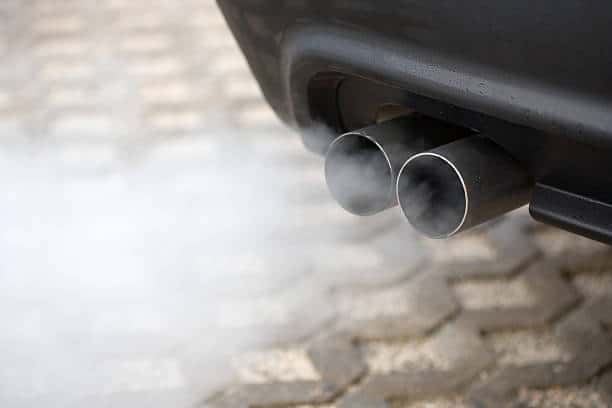When it comes to vehicle emissions, the focus is often on the visible smoke from the exhaust pipe. However, there are much smaller and more dangerous particles that are not being filtered effectively by car exhaust systems.
Experts suggest that the smallest and most dangerous particles, known as ultrafine particles, are not adequately filtered by car exhausts, leading to serious health problems for people exposed to them.
What Are Ultrafine Particles?
Ultrafine particles are characterised by their size, measuring less than 0.1 microns, about a thousand times smaller than the width of a human hair. These particles are produced by the combustion of fuels, including gasoline and diesel, in vehicle engines.
While larger particles can be filtered out by the straight-through exhaust pipes and particulate filters currently installed in exhaust systems, ultrafine particles are so small that they can pass through these filters and enter the atmosphere.
The Hazardous Threat of Particle Pollution
As we all know, pollution has been a recurrent problem for some time. Among the many environmental issues, air pollution is among the most alarming, with an estimated 4.2 million deaths in 2019 due to ambient air quality. The effects of diesel emissions on the environment are not to be taken lightly either.
Vehicle exhausts have significantly contributed to pollution, producing significant air pollutants such as nitrogen oxides, particulate matter, and other hazardous toxins.
However, the impact of particles produced by cars in terms of air pollution has often been overlooked, particularly since newer models of personal and commercial automobiles have been increasingly equipped with “diesel particle filters” to tackle this issue.
The Major Issue—Filters and Hazardous Particles
The University of Birmingham conducted a study investigating the effectiveness of such filters. Air quality data from a monitoring station in Marylebone Road, London, has revealed some concerning trends. While there has been a significant decline of 81% in larger particles like black carbon from 2014 to 2021, the number of ultrafine particles has only fallen by 26%.
Even more alarming is that the smallest particles, measuring less than 30 nanometres, have not decreased. These findings highlight a major issue with current filters, as they cannot capture these particles effectively. According to WHO guidelines, high concentrations of ultrafine particles are defined as being above 10,000 per cubic cm. At the Marylebone Road site, the measured concentrations were double this threshold.
The study shows the importance of evaluating filtration systems regularly for effectiveness in capturing various particle sizes to prevent hazardous particles from being released from vehicles. Outdated filtration systems that have become increasingly common in cars produced before the launch of “diesel particulate filters” in the early 2000s have shown to be predominantly ineffective in trapping larger particles.
These particles often penetrate deep into our lung tissue and have been linked to numerous respiratory and cardiovascular diseases, including lung cancer.
The Calls for Action
Several solutions are available to reduce the release of harmful particles from vehicle exhausts. Experts contest that an effective solution is to shift to electric or hybrid vehicles, which produce far less emissions than traditional petrol or diesel engines.
Electric and hybrid vehicles do not emit any pollutants directly, and their emissions are significantly lower than those of traditional engines, even when considering the emissions produced by generating the electricity needed to power them.
Another solution is to improve the design of exhaust filters to better capture ultrafine particles and other harmful gases. Researchers are currently exploring new filter materials, such as graphene and carbon nanotubes, which can more effectively capture ultrafine particles.
Governments can also implement policies and regulations to encourage vehicle manufacturers to develop cleaner engines and exhaust systems and offer incentives for consumers to purchase electric or hybrid vehicles.
Additionally, stricter regulations can be put in place to ensure proper maintenance of vehicles, such as regular emissions testing and mandatory replacement of worn or damaged exhaust filters. Governments should also be holding manufacturers to account for diesel claims.
Bottomline
The study conducted by the University of Birmingham has shed light on the ineffectiveness of vehicle filtration systems when it comes to hazardous and small particles in vehicle emissions. The calls for action made by the researchers to tackle this problem are vital in reducing the pollution in our environment and preventing any adverse health effects on the population.
Policymakers and regulators must act swiftly and collaboratively with manufacturers to introduce legislation and regulations that mandate the development of effective filtration systems to combat the release of hazardous particles into the environment.
Citizens, especially diesel car owners, can also join the fight against air pollution by going to https://www.emissions.co.uk to explore their options. By doing so, we can work towards reducing the number of respiratory and cardiovascular-related deaths associated with particle pollution and secure cleaner air for generations to come.





